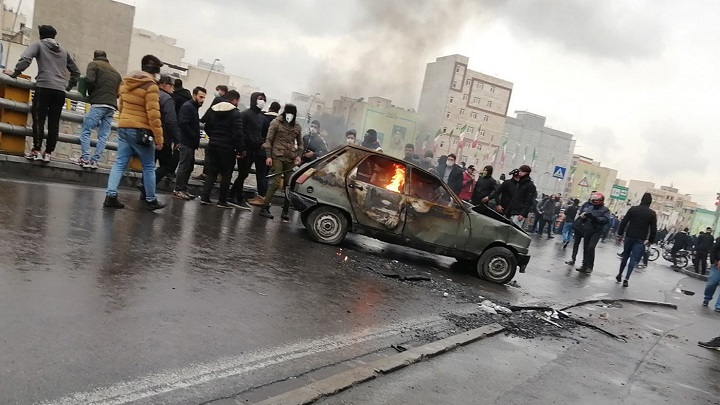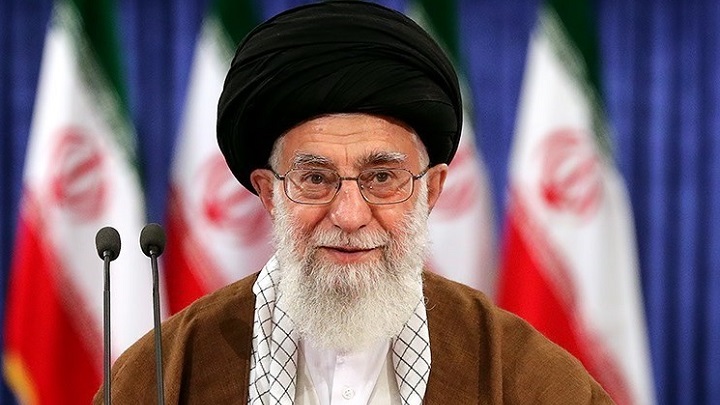Protests in Iran - Government Shuts Down the Internet
The Iranian government has decided to almost completely restrict citizens' access to the internet. This is a reaction to the protests and riots caused by the drastic rise in fuel prices.

By government decision, Iranians practically lost their access to the Internet - according to Reuters, the connection was limited to just 5% of the previous bandwidth. This is a consequence of the protests and then riots that began after the decision to increase the price of fuel, one of the most regulated goods in Iran, by 50-300%. The government hopes that shutting down the Internet will make it more difficult for citizens to organise themselves and provide information on abuse of services, e.g. in the form of photographs. Such action therefore restricts human rights and can also be used to violate them.
The number of fatal clashes is steadily increasing throughout the country; Amnesty International has established that there were 106 fatalities, but in fact there could have been as much as 200.
The United States has already condemned Iran's actions by issuing an official statement:
"The United States supports the Iranian people in their peaceful protests against the regime that is supposed to lead them. We condemn the lethal force and severe communications restrictions used against demonstrators. [...]."
In social media, Richard Grenell, Ambassador of the United States in Germany, argues that together heads of states and businessmen can help the Iranian people to get back in touch with the world:
Why did the Iranians took to the street?

The economic situation of Iranian citizens is steadily deteriorating. The sanctions imposed by the Donald Trump administration on the local economy did not help either - they affected mainly ordinary people. The first national protests took place at the turn of 2017 and 2018 due to the constantly deteriorating living conditions, opposition to the actions of the USA and corruption of the government.
Less than a week ago, the Iranian Government announced increases in fuel prices, justifying its decision on the grounds that higher fees would actually benefit the citizens. The money obtained in this way (more than 2.5 billion dollars a year) is to be used to pay benefits to the poorer part of the country, which is the majority (60 out of 80 million inhabitants). However, the increase in fees turned out to be the drop that spilled the glass and the Iranians have once again organized protests. Initially peaceful, they turned into riots, during which buildings and vehicles were set on fire. There have been mass arrests and numerous abuses by the police. Iran's Supreme Leader, Ali Khamenei, has announced that these acts are not the responsibility of the Iranian people, but of the enemies of the people, including those from abroad. As the first decision-maker in the country, he also said that price increases were necessary, so it is difficult to expect a relaxation of the government's position. Its representatives announced yesterday that they would restore the internet connection if they were sure that it would not serve to destabilise the country again:
"We understand that people have faced difficulties... but the bigger concern under the current circumstances is maintaining the country’s peace and stability."
- Rockstar North morale is said to be exceptionally low, and not necessarily because of another GTA 6 delay
- Problems with X (formerly Twitter) and ChatGPT (unlock challenges) continue as Cloudflare Global Network is experiencing issues
- Cloudflare loses court battle and must pay $3.2M to Japanese publishers over manga piracy sites
0

Author: Julia Dragovic
She studied philosophy and philology and honed her writing skills by producing hundreds of assignments. She has been a journalist at Gamepressure since 2019, first writing in the newsroom, then becoming a columnist and reviewer, and eventually, a full-time editor of our game guides. She has been playing games for as long as she can remember – everything except shooters and RTSs. An ailurophile, fan of The Sims and concrete. When she's not clearing maps of collectibles or playing simulators of everything, economic strategies, RPGs (including table-top) or romantic indie games, Julia explores cities in different countries with her camera, searching for brutalist architecture and post-communist relics.
Latest News
- Elite Mod lets you play the Tau faction in Warhammer 40K: Dawn of War 2
- Huge Marvel Adventures mod now with new superheroes, including Sentry
- Butcher's Summit, an impressive free diselpunk FPS, has been released
- Free FPS on Half Life engine gets big update
- On February 3, gaming history could change forever. Red Dead Redemption 2 one step away from a major achievement

